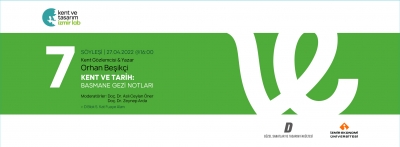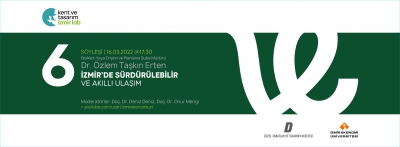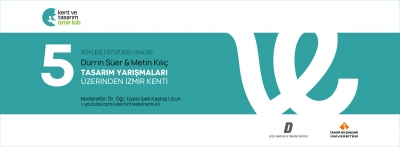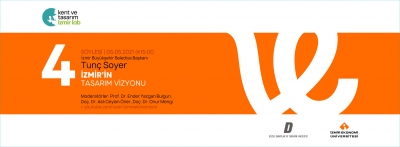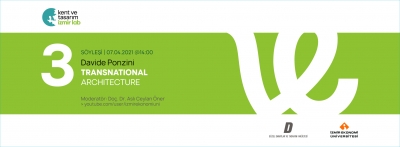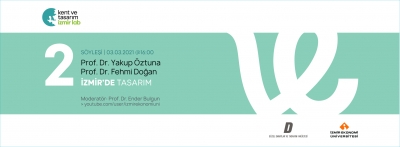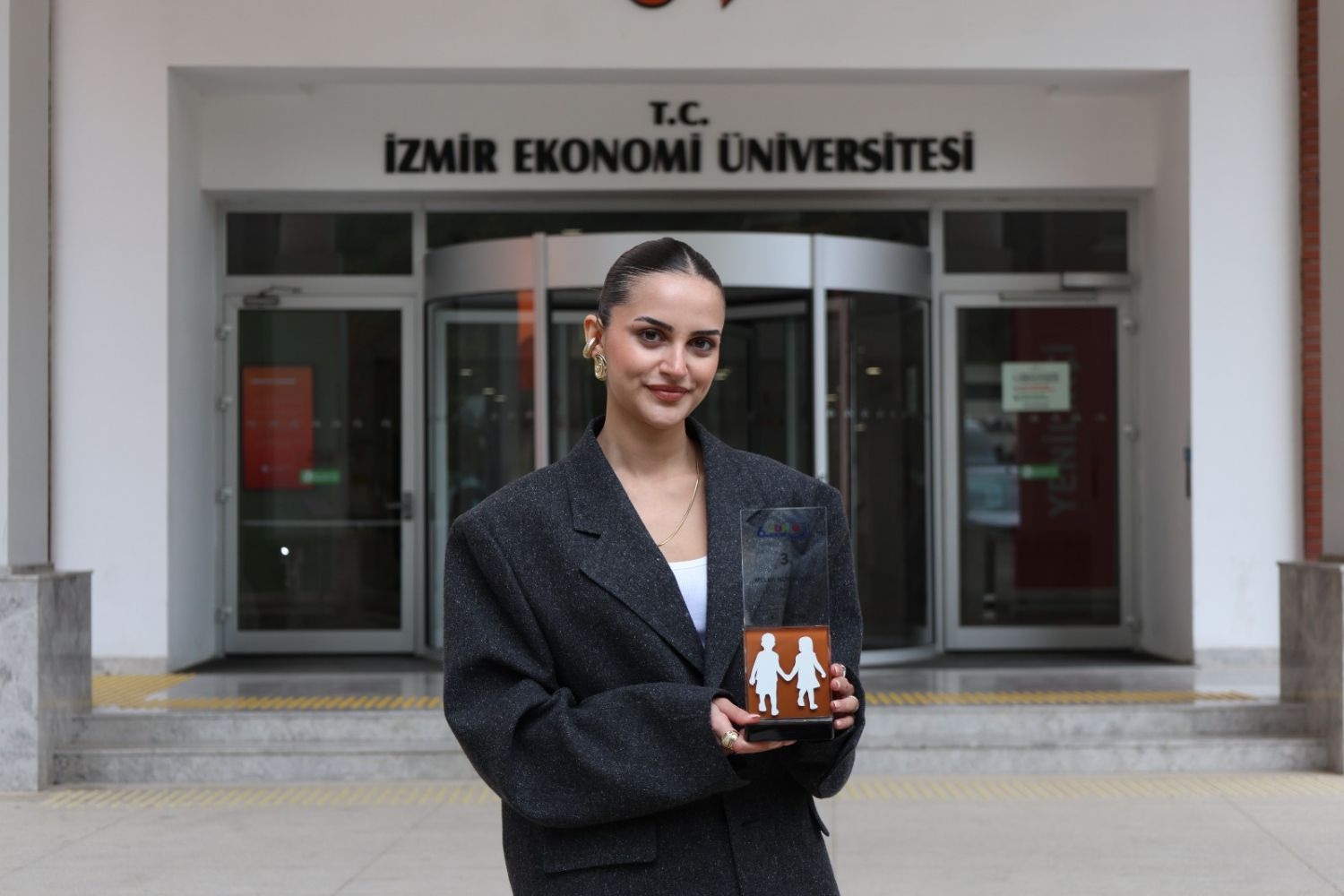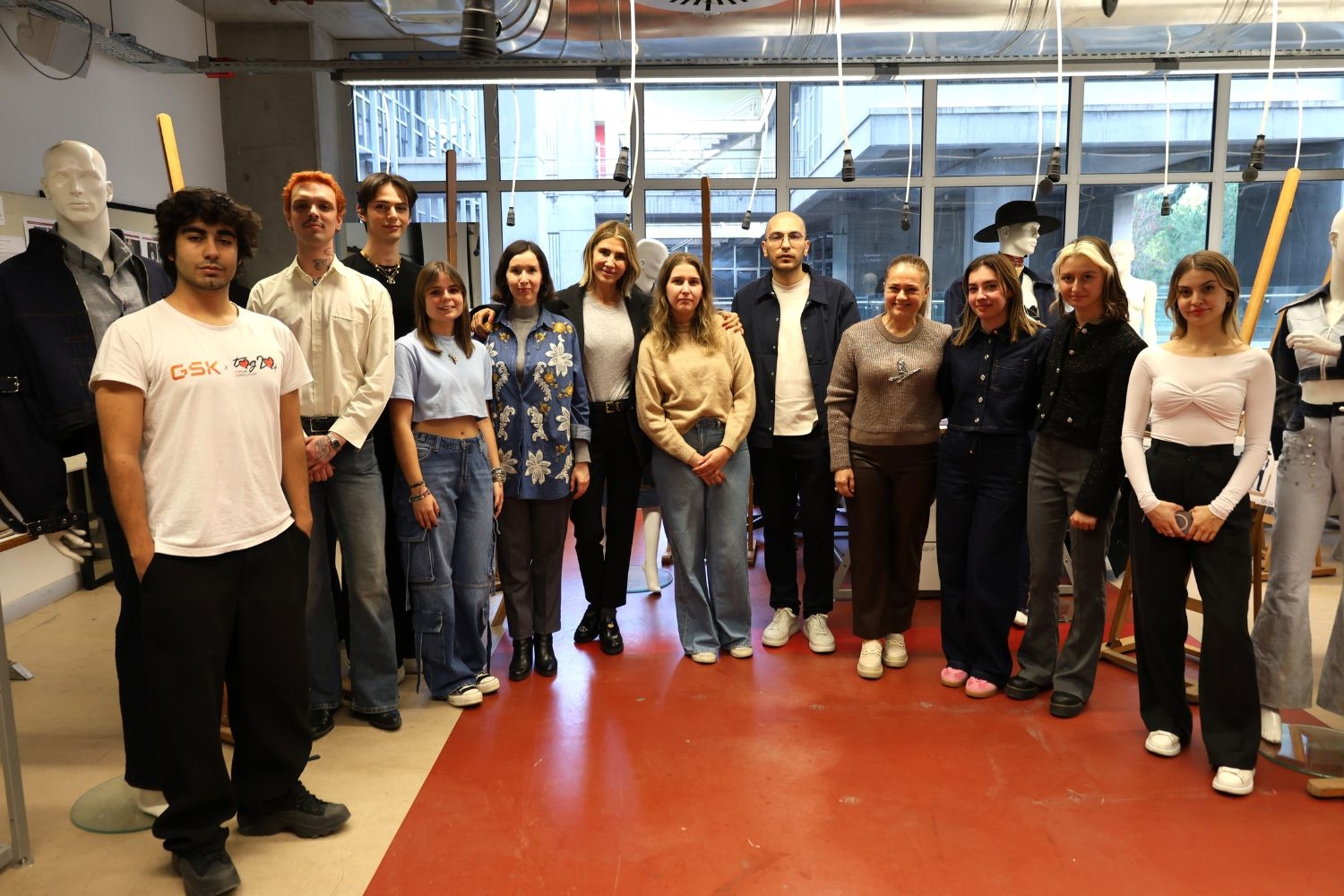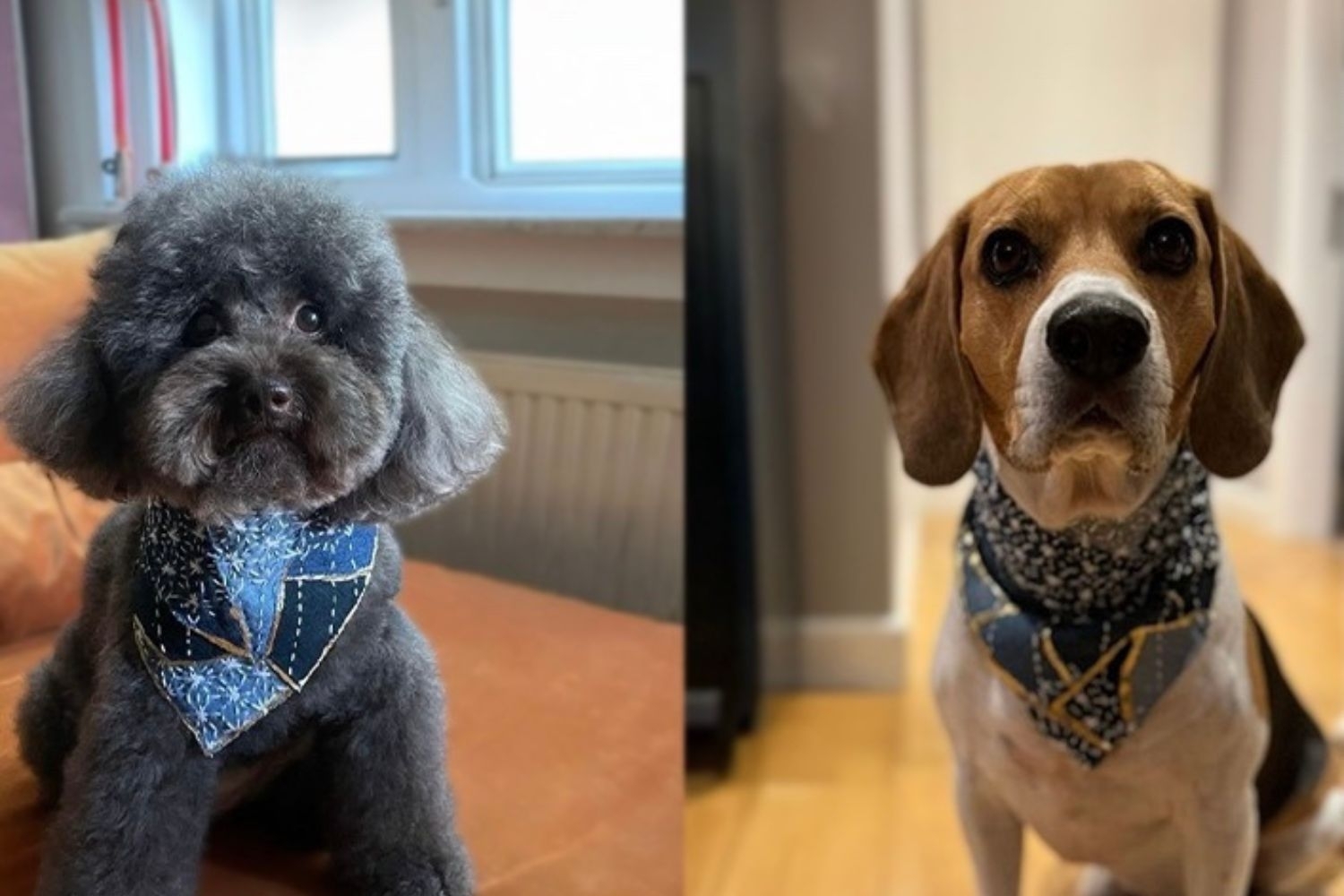FACULTY OF FINE ARTS AND DESIGN
Department of Textile and Fashion DesignFA 301 | Course Introduction and Application Information
| Course Name |
Fashion Theory
|
|
Code
|
Semester
|
Theory
(hour/week) |
Application/Lab
(hour/week) |
Local Credits
|
ECTS
|
|
FA 301
|
Fall
|
3
|
0
|
3
|
4
|
| Prerequisites |
None
|
|||||
| Course Language |
English
|
|||||
| Course Type |
Required
|
|||||
| Course Level |
First Cycle
|
|||||
| Mode of Delivery | face to face | |||||
| Teaching Methods and Techniques of the Course | DiscussionGroup WorkQ&ALecture / PresentationReport Writing | |||||
| National Occupation Classification | - | |||||
| Course Coordinator | ||||||
| Course Lecturer(s) | ||||||
| Assistant(s) | - | |||||
| Course Objectives | The course aims to give an insight into the academic disciplines that are important for understanding fashion; makes students gain an intellectual and critical perspective towards fashion culture and system. |
| Learning Outcomes |
The students who succeeded in this course;
|
| Course Description | The course focuses on the relations of body, dress and clothing constructs the knowledge and system of fashion upon the readings of classical and contemporary texts that have remark on fashion history and culture. |
| Related Sustainable Development Goals |
|
|
Core Courses | |
| Major Area Courses |
X
|
|
| Supportive Courses | ||
| Media and Management Skills Courses | ||
| Transferable Skill Courses |
WEEKLY SUBJECTS AND RELATED PREPARATION STUDIES
| Week | Subjects | Related Preparation |
| 1 | Introduction: academic disciplines | |
| 2 | Fashion and Morality | Aileen Ribeiro, Dress and morality, (Oxford/New York: Berg, 1986) 19-29 |
| 3 | Enlightenment ideas about fashion - Quiz 1 | E. Ellison, Rousseau and the Modern City: The Politics of Speech and Dress, Charles, Political Theory, Vol.13, No.4, pp. 513-522 |
| 4 | Baudelaire, romantism and modernity | Charles Baudelaire, “In praise of cosmetics”,The rise of fashion: a reader ,Daniel Purdy (ed) ( Minneapolis/ London: Mimmesota press: 2004) 219-220 |
| 5 | Oscar Wilde and aestheticism | Oscar Wilde, “The suitability of dress” in The rise of fashion: a reader, Daniel Purdy(ed) Minneapolis/ London: Mimnesota press: 2004) 232-238 |
| 6 | Fashion and economy - Quiz 2 | Thorstein Veblen , The theory of the leisure class in The rise of fashion: a reader ,Daniel Purdy (ed) (Minneapolis/ London: Mimnesota press: 2004) 261-309 |
| 7 | Fashion sociology | Georg Simmel, “Fashion” in The rise of fashion: a reader ,Daniel Purdy (ed) (Minneapolis/ London: Mimnesota press: 2004) 289-309 |
| 8 | Anthropology and street style (Introduction to oral presentations) | Dick Hebdige, The meaning of style, (London/New York : Berg,1979) 100-112 |
| 9 | Midterm | |
| 10 | Fashion and gender Studies - Quiz 3 | Louise Collins “ Fashion Dolls and Feminism” in, Fashion: Philosopjy for Everyone Jessica Wolfendale ve Jeanette Kenneth(ed) ( New York: Blackwell pub, 2011) 151-164 |
| 11 | Fashion and semiology | Caroline Evans, ‘A shop of images and signs’ in Fashion as photograph. Viewing and reviewing Images of fashion’, E. Shinkle (ed.) (London/New York : I.B Tauris,2008) 17-29 |
| 12 | Fashion philosophy: Conceptual fashion - Quiz 4 | Ingrid Loschek, When clothes become fashion. Design and innovation systems (Oxford/New York: Berg, 2009,)187-190) |
| 13 | Fashion philosophy: Ethics | Rebecca Arnold, Fashion: A very short introduction (Oxford/New York : Oxford University Press) 85-104 |
| 14 | Oral group presentations | |
| 15 | Semester review | |
| 16 | Semester review / Final exam |
| Course Notes/Textbooks | Daniel Purdy ,The rise of fashion: a reader( Minneapolis/ London: Mimnesota press: 2004) Rebecca Arnold, Fashion: A very short introduction (Oxford/New York : Oxford University Press) 85-104 Aileen Ribeiro, Dress and morality, (Oxford/New York: Berg, 1986) E. Shinkle (ed.), Fashion as photograph. Viewing and reviewing Images of fashion’(London/New York : I.B Tauris,2008) Jessica Wolfendale ve Jeanette Kenneth(ed) , Fashion: Philosopjy for Everyone( New York: Blackwell pub, 2011) Dick Hebdige, The meaning of style, (London/New York : Berg,1979) Ingrid Loschek, When clothes become fashion. Design and innovation systems (Oxford/New York: Berg, 2009) |
| Suggested Readings/Materials |
EVALUATION SYSTEM
| Semester Activities | Number | Weigthing |
| Participation |
1
|
10
|
| Laboratory / Application | ||
| Field Work | ||
| Quizzes / Studio Critiques |
4
|
20
|
| Portfolio | ||
| Homework / Assignments | ||
| Presentation / Jury |
1
|
15
|
| Project | ||
| Seminar / Workshop | ||
| Oral Exams | ||
| Midterm |
1
|
25
|
| Final Exam |
1
|
30
|
| Total |
| Weighting of Semester Activities on the Final Grade |
7
|
70
|
| Weighting of End-of-Semester Activities on the Final Grade |
1
|
30
|
| Total |
ECTS / WORKLOAD TABLE
| Semester Activities | Number | Duration (Hours) | Workload |
|---|---|---|---|
| Theoretical Course Hours (Including exam week: 16 x total hours) |
16
|
3
|
48
|
| Laboratory / Application Hours (Including exam week: '.16.' x total hours) |
16
|
0
|
|
| Study Hours Out of Class |
14
|
1
|
14
|
| Field Work |
0
|
||
| Quizzes / Studio Critiques |
4
|
3
|
12
|
| Portfolio |
0
|
||
| Homework / Assignments |
0
|
||
| Presentation / Jury |
1
|
16
|
16
|
| Project |
0
|
||
| Seminar / Workshop |
0
|
||
| Oral Exam |
0
|
||
| Midterms |
1
|
15
|
15
|
| Final Exam |
1
|
15
|
15
|
| Total |
120
|
COURSE LEARNING OUTCOMES AND PROGRAM QUALIFICATIONS RELATIONSHIP
|
#
|
Program Competencies/Outcomes |
* Contribution Level
|
|||||
|
1
|
2
|
3
|
4
|
5
|
|||
| 1 |
To be able to develop and design a collection independently. |
-
|
-
|
-
|
-
|
-
|
|
| 2 |
To be able to do maintain a design research individually or as a team. |
-
|
X
|
-
|
-
|
-
|
|
| 3 |
To be able to develop entrepreneurship- and managerial skills for a future professional practice. |
-
|
-
|
-
|
-
|
-
|
|
| 4 |
To be able to understand, interpret and apply theoretical knowledge in fashion and textile design. |
-
|
-
|
X
|
-
|
-
|
|
| 5 |
To be able to analyze and integrate the particular local and regional needs and of their profession. |
-
|
-
|
-
|
-
|
-
|
|
| 6 |
To be able to obtain a multidisciplinary point of view, follow and analyze the new issues, changes and trends in contemporary design and art in such a way that they can be integrated into design practice. |
-
|
-
|
X
|
-
|
-
|
|
| 7 |
To be able to apply industrial requirements, knowledge of material & usage and know-how knowledge in the creation of high quality fashion products. |
-
|
-
|
-
|
-
|
-
|
|
| 8 |
To be able to use digital information and communication technologies at a level that is adequate to the discipline of fashion and textile design. |
-
|
-
|
-
|
-
|
-
|
|
| 9 |
To be able to develop an ongoing analytical and professional approach to academic and design research. |
-
|
X
|
-
|
-
|
-
|
|
| 10 |
To be able to recognize the need and importance of a personal lifelong learning attitude towards their chosen area of interest. |
-
|
-
|
-
|
-
|
-
|
|
| 11 |
To be able to collect data in the areas of fashion and textile design and communicate with colleagues in a foreign language ("European Language Portfolio Global Scale", Level B1). |
-
|
-
|
-
|
-
|
-
|
|
| 12 |
To be able to speak a second foreign at a medium level of fluency efficiently. |
-
|
-
|
-
|
-
|
-
|
|
| 13 |
To be able to relate the knowledge accumulated throughout the human history to their field of expertise. |
-
|
-
|
-
|
-
|
-
|
|
*1 Lowest, 2 Low, 3 Average, 4 High, 5 Highest
NEWSALL NEWS

IZMIR UNIVERSITY OF ECONOMICS GÜZELBAHÇE CAMPUS
DetailsGLOBAL CAREER
As Izmir University of Economics transforms into a world-class university, it also raises successful young people with global competence.
More..CONTRIBUTION TO SCIENCE
Izmir University of Economics produces qualified knowledge and competent technologies.
More..VALUING PEOPLE
Izmir University of Economics sees producing social benefit as its reason for existence.
More..









